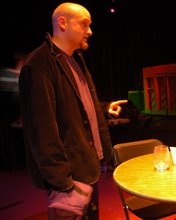from The Trial of the Catonsville Nine - Daniel Berrigan
formatting my own
From those in power, we have met little understanding,
much silence, much scorn and punishment.
We have been accused of arrogance.
But what of the fantastic arrogance of our leaders?
What of their crimes against the people, the poor and powerless?
Still no court will try them, no jail will receive them.
They live in righteousness.
They will die in honor.
For them we have one message,
for those in whose manicured hands the power of the land lies,
We say to them:
Lead us.
Lead us in justice and there will be no need to break the law.
Let the President do what his predecessors failed to do.
Let him obey the rich less
and the people more.
Let him think less of the privileged
and more of the poor.
Less of America
and more of the world.
Let lawmakers, judges, and lawyers think less of the law
and more of justice;
less of legal ritual,
more of human rights.
To our bishops and superiors we say:
Learn something about the
gospel and something about illegitimate power.
When you do, you will liquidate your investments,
take a house in the slums,
or even join us in jail.
To lawyers, we say:
Defend draft resisters, ask no fees, insist on justice,
risk contempt of court, go to jail with your clients.
To the prosecution, we say:
Refuse to indict opponents of the war, prefer to resign, practice in private.
To Federal judges, we say:
Give anti-war people suspended sentences
to work for justice and peace or resign your
posts.
You men of power,
I also have a dream:
You have told us that your system is reformable.
Reform it then.
And we will help,
with all our conviction and energy,
in jail or out.





